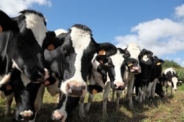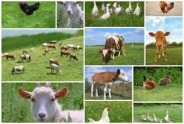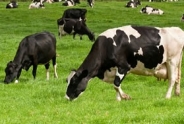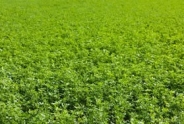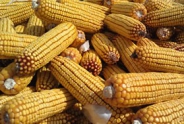The Bob Veal Calf Concern
Jerry Bertoldo, Dairy
Northwest New York Dairy, Livestock & Field Crops

Bull calves in the dairy business are most often a topic that producers would rather not think about. The financial returns from selling them are usually low. There are unavoidable labor costs in their care. The sooner they leave the farm the better is the usual mantra. Too many of these critters become bob veal - early slaughtered calves with minimal economic value. Farmers are reluctant to put more time and effort into insuring a strong and healthy calf that has a good chance of entering a veal raising operation. This means holding on to these calves for some extra days risking the chance of scours or worse yet death. Veal managers do not want light, less vigorous and very young bull calves for fear of high loss rates as well. Experience tells them that larger and more active calves will do better and result in lower mortality rates and better feed conversion.
There has been another issue creeping onto the scene, that of antibiotic residues in bob veal. Few people are bold enough to think that treating a young calf directly with injectable antibiotics will not result in detectable tissue levels if that animal enters the food chain within a few days. The problem is generally not from injectable products, but from oral scour medications, medicated milk replacers and more rarely colostrum containing antibiotics. Neomycin has been the most common culprit.
Neomycin and tetracycline have both been included in some scour medications and milk replacers for many years. Labeling of these scour treatments can be misleading as to withdrawal times. Medicated milk replacers do not contain treatment levels of these antibiotics, but are formulated for use in heifer calves not calves destined for bob veal. Colostrum from cows treated with oil based dry treatments is most likely to carry residues of significance to the newborn calf. Dry treating less than the labeled days pre-calving, double tubing or treating a slack quarter can result in higher than expected first milking antibiotic levels.
Holding out milk on fresh cows according to the labeled recommendations on dry treatment and not feeding it to bull calves is an extra measure of safety. The vast majority of colostrum will not cause an issue, however. Feeding heifer colostrum to bull calves is a failsafe way of preventing colostrum based problems provided that the practice of dry treating springers is not in place.
Upcoming Events
2026 Forage Congress
March 12, 2026
Nunda, NY
Due to the unprecedented winter storm that recently impacted travel conditions across the region and U.S., combined with extreme cold temperatures and associated safety concerns, Forage Congress was postponed out of an abundance of caution. This decision was made with the safety of our participants, speakers, staff, and venue partners as the highest priority.
We are pleased to officially announce that Forage Congress has been rescheduled for Thursday, March 12, 2026, and will be held at The Nunda Ranch as originally planned.
Address: 2278-NY 436, Nunda, New York 14517
Sponsorship opportunities, vendor participation, and event registration are now open. We are excited to reconvene this important educational program and look forward to welcoming producers, industry partners, and speakers for a full day of applied, research-based forage systems programming.
From Dry to Fresh: Transition Cow Management Training
March 12, 2026
Albion, NY
This is a 1-day hands-on training in transition cow management offered in English and Spanish.
TENTATIVE- 2026 Dairy Feeder School - November 2026
November 11 - November 12, 2026
Dates are TENTATIVE for 2026! More Details to Come!
Join the Regional Dairy Specialists for a one day on-farm training for dairy farm feeders. The training will be offered in English and Spanish and will feature stations with hands-on activities and demonstrations.

